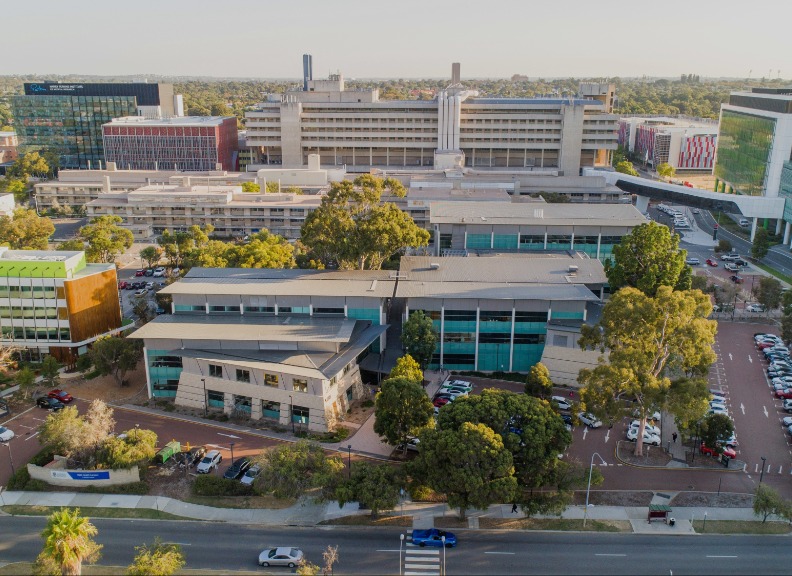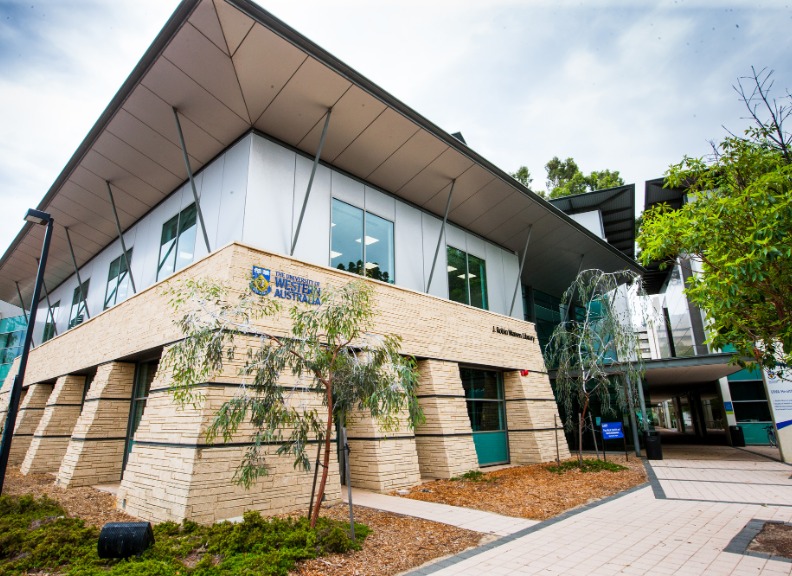FACILITY
Centre for Clinical Research in Neuropsychiatry
Researching severe mental illness to improve lives
The Centre for Clinical Research in Neuropsychiatry (CCRN) is an academic centre of excellence for multidisciplinary research into psychiatry and the neurosciences.
The major focus of our research is on psychotic disorders. Our goal is to unlock the complexity of schizophrenia and related disorders by listening to experience, challenging existing ideas, and exploring new approaches to assessment and treatment.
At CCRN, we generate scientifically valid databases to assist us in conducting advanced research into the aetiology of mental disorders, their management and treatment.
We provide research training and supervision of trainee psychiatrists; medicine, psychology and science students; and other mental health professionals.
While educating the community about the scientific understanding of mental disorders and the advances in their treatment and management, we promote and assist high-quality psychiatric, mental health and neuroscience research statewide.
As of 2012 we became a member of the Commonwealth Cooperative Research Centre for Mental Health, with the mandate to develop and validate biomarkers for schizophrenia subtypes.
In keeping with our core mission to produce research with impact, citations to our work continue to increase and our researchers are regularly invited as keynote speakers and presenters at national and international conferences.
Published 600+ research articles in high-impact peer-reviewed journals
Awarded 100+ competitive national and international research grants to a total value of more than $42 million
Hosted national and international research conferences
How CCRN works with the community
CCRN researchers are involved in recruiting and interviewing study participants, while also being in charge of laboratory bench work, processing and analysing databases, employing complex paradigms to tackle specific hypotheses, and disseminating results to a range of audiences.
None of this would be possible without the willingness of patients, family members and others in the community to contribute time and effort to research that will ultimately benefit those at risk for serious disorders of mind and body.
We are particularly fortunate to be working in partnership with people living with mental illness, including the charitable organisation Meeting for Minds (M4M).
We believe that what we are doing at CCRN leads us in the right direction to future knowledge, but we also owe the community research outcomes that can find application now.Winthrop Professor Assen Jablensky
Director, Centre for Clinical Research in Neuropsychiatry
Our research themes
We have a number of research specialisations, including:
- Genetic studies of schizophrenia
- Translational research: ‘bench to bedside and back’
- Cognitive-perceptual mechanisms of symptoms
- Language and communication
- Social cognition and functioning
- Schizotypal personality traits
Our projects
Some of our major clinical and genetic research projects to date have included:
- Researchers involved in the WA Family Study of Schizophrenia are discovering, characterising and publishing novel schizophrenia genes
- Examining in depth the so-called first rank symptoms of schizophrenia disorder
- Investigating visual information processing and brain bioelectrical responses to stimuli
- Applying sophisticated statistical modelling to integrate multiple neurocognitive measures into continuous phenotypic traits.
- Developmental life course trajectories and schizophrenia
-
We are studying the neurodevelopmental life course trajectory to schizophrenia in a whole-population cohort of children born 1980 to 2001, and analysing familial and environmental risk factors in the aetiology of the disease.
Through the use of record-linkage across long-standing administrative health and social services registers, we aim to understand the aetiology of schizophrenia through linked health data.
- Congenital blindness and schizophrenia
-
It has been reported more than once that schizophrenia is very rare among people with congenital and early acquired blindness, which is in contrast to frequent paranoid psychoses in people with acquired deafness.
Using the Pathways study’s linked databases, in which 500,000 Western Australian children were followed through to adulthood, we will review the psychiatric history of people with diagnoses of congenital blindness.
Our goal is to add evidence to the literature regarding congenital blindness and schizophrenia utilising the Health Department’s database.
- An empirical framework for assessing mortality and morbidity in people with psychotic illness
-
This project involves a seven-year follow-up and 10-year retrospective analysis of 2075 Survey of High Impact Psychosis (SHIP) participants using linked mortality and health registers.
Physical disease and premature death are elevated in schizophrenia and cross-sectional data has revealed rates of physical morbidity among SHIP participants is well above population rates, resulting in a very high cost burden.
However, there is a critical need for longitudinal data. In this study, we will analyse 17 years (2000 to 2017) of mortality and physical morbidity outcome data from state and national administrative registers to estimate the rates of seven-year mortality and morbidity in people with a psychotic disorder.
The research will also look at the economic burden of severe and acute physical morbidity and the impact of risk factors on this population.
- Hallucinations in healthy older adults
-
Accumulating evidence shows hallucinatory experiences are present at surprisingly high rates in healthy older adults, without signs of psychosis, dementia or delirium.
Stigma and misunderstanding of hallucinations, together with ageism, may lead to under-reporting of these experiences by older adults, and misdiagnosis or mismanagement by health and mental health practitioners.
This project aims to get a better understanding of the phenomenology, causes and consequences of hallucinations in healthy adults aged over 60 years to help improve aged care services and treatments.
- PTPN21/ErbB4 pathway: disruption of key mediators of neuronal migration and synaptic plasticity in schizophrenia
-
This collaboration is focused on genes in the PTPN21-ErbB4/NRG3 pathway, which positively influence cortical neuronal survival and neuritic length.
Aberrant functioning of these genes has been implicated in schizophrenia susceptibility.
This study will investigate the association of genetic variants in the pathway to schizophrenia using The Western Australian Family Study of Schizophrenia case-control sample and available genome-wide association study data.
The role of these variants on quantitative neurocognitive endophenotypes in the sample will also be examined. The goal of the project is to understand the association between specific genes and the risk of developing schizophrenia.
- The ubiquitin proteasome system in schizophrenia
-
This project is focused on understanding the Ubiquitin-Proteasome system (UPS) and its role in neurodegenerative disorders.
The study will be based on preliminary findings of ubiquitination in a small sample of clozapine-treated patients. The UPS is important in the degradation and modification of proteins and has been identified as an important target for the therapeutic treatment of neurodegenerative disorders, including schizophrenia.
- Impact of social adversity on the developmental trajectory to mental illness
-
This study will look at a whole-population cohort of children at familial high-risk for psychotic disorders, by exploring the role of stress, adversity and other socially mediated risk factors in the aetiology of schizophrenia and other psychotic disorders.
The study aims to:
- identify the extent of the contribution of social adversity to risk for psychotic illness
- examine the interplay between social adversity, genetic risk and other predictors of psychotic illness
- distinguish developmental trajectories to psychotic illness using available data on predisposing factors so as to identify modifiable targets amenable to intervention and prevention
- investigate the nature of individual resilience, distinguishing those who do not develop psychotic illness following exposure to social adversity from those who do
We will examine specificity for psychotic illness, rather than general mental illnesses.
- Language, thought and action in schizophrenia
-
Language and thought dysfunction are central features in schizophrenia but still poorly understood.
Improved understanding of language difficulties in schizophrenia may help to provide new directions for assessment and treatment.
This project aims to examine whether some of the root causes of language production problems are linked to both higher-level problems in action-related semantics and lower-level deficits in sensory-motor perception.
Collaborations and funding
Since the Centre’s inception in 1995, it has raised more than $42 million in funding towards neuropsychiatry research. CCRN is also embedded in major international and national collaborative networks of research into severe mental disorders.
We are active members of large genetics research consortia and linked with institutions in Indonesia, Mongolia, Norway, Vietnam, the United Kingdom and the United States.
Some of these collaborations and funding sources include:
Local (UWA)
- Centre for Genetic Origin of Health Disease
- Harry Perkins Research Institute
- Lions Eye Institute
- UWA School of Psychology
National
- Australian Schizophrenia Research Bank (ASRB)
- Cooperative Research Centre – Mental Health
- Survey of High Impact Psychosis (SHIP) Study
International
- International Schizotypy Consortium
- Meeting for Minds
- Pedigree-Based Endophenotype Consortium
- Psychiatric Genomics Consortium (PGC2)
- World Health Organisation
- Wellcome Trust Consortium
National Health and Medical Research Council Funded Grants
2016
- An empirical framework for assessing mortality and morbidity in people with psychotic disorders: A 7-year prospective and 10-year retrospective follow-up of 2075 participants in the Survey of High Impact Psychosis (SHIP) using linked registers
2015
- Impact of social adversity on the developmental trajectory to mental illness: A study of a whole-population cohort of children at familial high-risk for psychotic disorders
2014
- Genome sequencing of families with schizophrenia
2013
- Overcoming barriers to improved physical health in people with severe mental illness
2011
- Lifecourse trajectories and neuropsychiatric outcomes in an e-cohort of high risk children of mothers with psychosis
2008
- Memory, synaptic plasticity and gene networks in schizophrenia
Related facilities
Related links
Contact Winthrop Professor of Psychiatry and Director of CCRN Assen Jablensky
If you would like to get involved in any of our research projects, contact us on the details below.




